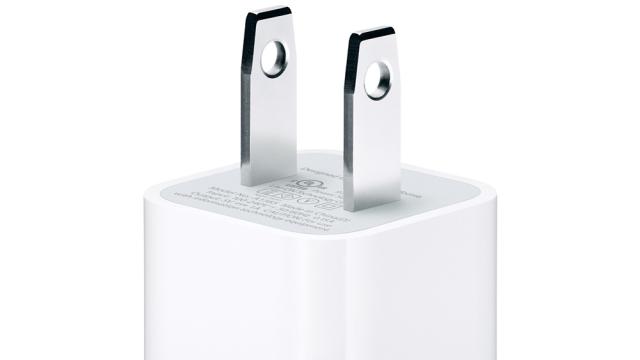Dear Lifehacker, We know using cheap, third-party cables to charge a smartphone is bad, but what about the little bricks that plug into the wall or nubs that plug into a car lighter? Are these safe to use or will they turn my iPhone into a ticking time bomb? Thanks, Roommate Hater
Dear RH,
Ticking? Definitely not. Explosive? Probably not. Do you run a risk? Yes. Do most people care? No.
I’ll caveat my advice by saying that I’m hardly an electronics expert like Nathan K. or Benson Leung, but I’ll do my best. Generally, Apple would prefer you use Apple accessories – and only Apple accessories – to charge your iPhone. But even the tech juggernaut stocks plenty of third-party adapters and cables at its own online and retail stores. If the company was truly that concerned about third-party products potentially wrecking or blowing up its devices, it wouldn’t sell them.
That said, the best suggestion I can give is also the most generic: Don’t buy power adapters or cables that don’t pass the smell test. If something looks too good to be true – perhaps its priced extraordinarily low compared to other power adapters you’re looking at, or it just looks like a crappy counterfeit of a real power adaptor – don’t buy it.
(Here’s an older, but good comparison of what’s inside a real iPhone power adaptor versus a counterfeit one, if you want to geek out for a moment.)
When you’re shopping, research products from big, reputable brands you’ve heard of: Anker, Samsung, Belkin, etc. Read reviews from others who have purchased the power adapters, and note any instances where people have had critical issues when charging their smartphones or tablets. Sometimes, that just happens. If it feels like it’s happening to a majority of people who are leaving a review for a product, steer clear.
You can also try looking up whether certain adapters have USB-IF certification from the (non-profit) USB Implementers Forum or if they’re Apple MFI-certified (short for Made For iPhone). These still doesn’t guarantee that every certified power adaptor will work perfectly one-hundred per cent of the time, but it can help decrease the risk that you’re buying something that hasn’t been vetted in some fashion.
Naturally, you should also favor Australian-based merchants over international sellers on eBay and the like. Australia has very strict consumer safety laws – penalties for selling or importing unmarked and untested chargers in Australia is over $80,000 plus up to two years in prison. To tell is a charger is certified, look for the Regulatory Compliance Mark (RCM) on the package (this resembles an upside down ‘Give Way’ sign with a big tick in the middle.)
Cheers
Lifehacker
Got your own question you want to put to Lifehacker? Send it using our contact tab on the right.

Comments